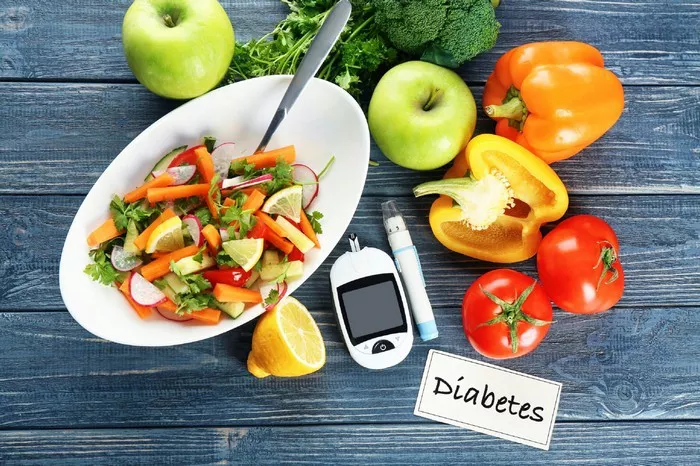Managing diabetes requires a comprehensive approach to diet, and one of the most common concerns among people with diabetes is how to balance fruit intake. Fruit is a natural source of vitamins, minerals, fiber, and antioxidants, which are essential for overall health. However, due to its carbohydrate content, particularly sugars, people with diabetes often wonder how many servings of fruit they should consume each day without causing spikes in blood sugar.
The question of how many servings of fruit are appropriate for someone with diabetes does not have a one-size-fits-all answer. It depends on various factors such as the type of diabetes, the individual’s overall health, their medication or insulin regimen, their physical activity level, and how their body responds to different fruits. In this article, we will explore the impact of fruit on blood sugar, the factors that affect fruit consumption, and provide guidance on how many servings of fruit are appropriate for a diabetic person each day.
Understanding Diabetes and Blood Sugar Management
Diabetes is a condition in which the body struggles to regulate blood glucose (sugar) levels. This can occur due to either a lack of insulin production (Type 1 diabetes) or insulin resistance (Type 2 diabetes). Insulin is a hormone produced by the pancreas that helps the body use glucose for energy or store it for later use.
When people with diabetes eat, particularly carbohydrates like those found in fruit, their blood sugar levels can rise. The body responds by releasing insulin to lower blood sugar. However, in diabetes, this process does not work as efficiently, leading to elevated blood sugar levels if not managed properly. The primary goal of diabetes management is to maintain blood glucose levels within a target range to prevent complications such as heart disease, nerve damage, and kidney disease.
The Role of Fruit in a Diabetic Diet
Fruit is an essential part of a balanced diet due to its rich nutrient profile. It is an excellent source of vitamins (such as Vitamin C and folate), minerals (including potassium), antioxidants, and dietary fiber. For diabetics, fruit can be a healthy and satisfying snack option or a beneficial addition to meals.
However, fruit contains natural sugars in the form of fructose, which can raise blood glucose levels. This is where portion control and mindful consumption become important. The goal is to ensure that the fruit intake provides beneficial nutrients without causing significant spikes in blood sugar. For diabetics, the key is to consume the right types and amounts of fruit and to balance fruit intake with other macronutrients such as protein, fats, and fiber.
Factors Affecting Fruit Intake for Diabetics
Before determining how many servings of fruit a diabetic person should eat, it’s important to consider several factors that affect fruit consumption:
1. Type of Diabetes
There are two main types of diabetes:
Type 1 Diabetes: This is an autoimmune condition where the body does not produce insulin. People with Type 1 diabetes need to closely monitor their carbohydrate intake, including fruit, and adjust their insulin doses accordingly. The amount of fruit they consume is typically determined based on their insulin-to-carb ratio.
Type 2 Diabetes: In Type 2 diabetes, the body becomes resistant to insulin or does not produce enough insulin. Managing fruit intake can help prevent blood sugar spikes. People with Type 2 diabetes may benefit from portion control and monitoring blood sugar levels to understand how different fruits affect their glucose.
2. Carbohydrate Counting
One of the main concerns with fruit is its carbohydrate content. Carbs, particularly sugars, are broken down into glucose in the body, which can cause blood sugar levels to rise. Diabetics often count carbohydrates to manage their blood sugar. Each serving of fruit contains a certain amount of carbohydrates, and diabetics need to factor that into their daily carb count to avoid blood sugar spikes.
3. Blood Sugar Levels and Monitoring
Each individual with diabetes responds differently to food, including fruit. Some fruits may cause a significant rise in blood sugar, while others may have a minimal effect. Monitoring blood glucose levels after eating fruit can help individuals identify which fruits work best for them. Continuous glucose monitoring (CGM) or regular blood glucose testing can help in making informed decisions about fruit consumption.
4. Insulin or Medication Regimen
People who take insulin or oral medications for diabetes may need to adjust their fruit intake based on the type and timing of their medication. Insulin therapy, for example, requires careful consideration of carbohydrate intake, including fruit, to prevent low blood sugar (hypoglycemia) or high blood sugar (hyperglycemia).
5. Physical Activity
Exercise increases insulin sensitivity, meaning the body can better manage blood sugar levels. Active individuals may have more flexibility with their fruit intake, as exercise helps lower blood glucose levels. However, it’s still important to monitor blood sugar and adjust food choices based on activity levels.
6. Personal Preferences and Lifestyle
Each person’s lifestyle and preferences play a role in their dietary choices. Some individuals may prefer to consume fruit as a part of a meal, while others may use fruit as a snack. Understanding one’s personal habits, lifestyle, and dietary goals is essential in determining the right amount of fruit to include in a diabetic diet.
How Many Servings of Fruit Are Safe for a Diabetic?
There is no universal recommendation for the exact number of servings of fruit a diabetic should eat per day, but general guidelines can help people with diabetes make informed decisions. The American Diabetes Association (ADA) and other reputable sources suggest that most people with diabetes can enjoy fruit as part of a healthy, balanced diet, but moderation is key.
1. What is a Serving of Fruit?
A serving of fruit is typically defined as:
- One small piece of fruit, such as an apple, orange, or pear
- Half a medium-sized fruit, such as a banana or grapefruit
- One cup of fresh fruit (for berries, melon, or grapes)
- One-quarter cup of dried fruit
- One-half cup of fruit juice (though whole fruit is always a better choice due to fiber content)
2. Recommended Number of Servings
In general, the recommended amount of fruit for diabetics is 1 to 2 servings per meal. This typically translates to 2 to 4 servings per day, depending on individual preferences and dietary needs.
For individuals with Type 2 diabetes, a typical meal plan may consist of three meals per day, with 1 to 2 servings of fruit per meal. A snack may contain an additional serving of fruit, depending on the individual’s blood sugar control, insulin use, and preferences.
For individuals with Type 1 diabetes, the number of servings of fruit may vary based on the individual’s insulin-to-carb ratio and how much insulin they take. Close monitoring of blood glucose levels is essential for determining the optimal number of fruit servings.
3. Factors to Consider When Deciding on Fruit Servings
While the general recommendation is 1 to 2 servings per meal, several factors should be considered when determining how much fruit to eat:
Carbohydrate Content: Some fruits have higher carbohydrate content than others. For example, bananas, grapes, and mangoes contain more carbohydrates than berries, peaches, or apples. The more carbs in a fruit, the more impact it will have on blood sugar levels. Diabetics should be mindful of the carbohydrate count for each serving of fruit and adjust their intake accordingly.
Fiber Content: Fiber slows the absorption of sugar, which can help regulate blood glucose levels. Fruits that are high in fiber, such as apples, pears, and berries, are beneficial for diabetics. Fiber also helps with digestion and promotes feelings of fullness, making it easier to control weight.
Glycemic Index (GI): The glycemic index (GI) is a measure of how quickly foods raise blood sugar levels. Foods with a low GI, such as berries, cherries, and apples, have a slower, more gradual impact on blood sugar levels. Diabetics should prioritize low-GI fruits to avoid rapid spikes in glucose levels.
Whole Fruit vs. Fruit Juices: Whole fruits are preferred over fruit juices because they contain more fiber and have a lower glycemic index. Fruit juices, even when unsweetened, are rapidly absorbed into the bloodstream and can cause a quick spike in blood sugar. Additionally, fruit juices often lack the fiber that helps regulate blood sugar.
4. The Best Fruits for Diabetics
Some fruits are better suited for individuals with diabetes due to their low glycemic index, high fiber content, and lower carbohydrate levels. These fruits include:
Berries (strawberries, blueberries, raspberries, blackberries): Low in carbs and high in fiber, antioxidants, and vitamin C.
Apples: A good source of fiber, particularly when eaten with the skin, and a moderate glycemic index.
Pears: High in fiber and low in glycemic index, which helps prevent rapid spikes in blood sugar.
Peaches and Plums: Low-carb fruits that are also high in fiber and vitamins.
Cherries: Have a low glycemic index and are high in antioxidants.
Grapefruit: Low in carbs and has a relatively low glycemic index, making it a good option for blood sugar control.
Kiwifruit: Rich in fiber and vitamin C with a low glycemic index.
Conclusion: Finding the Right Balance
For individuals with diabetes, fruit can be a nutritious and enjoyable part of a balanced diet, but it should be consumed mindfully. The number of servings of fruit a diabetic should eat per day depends on individual factors such as blood sugar levels, insulin use, physical activity, and personal preferences. Generally, 2 to 4 servings per day are appropriate, with careful consideration given to portion sizes, carbohydrate content, and the type of fruit consumed.
It’s essential to choose fruits with a low glycemic index and high fiber content to minimize blood sugar spikes. Monitoring blood glucose levels after fruit consumption can help individuals determine how different fruits affect their blood sugar and adjust their intake accordingly. By following these guidelines and working with a healthcare provider or dietitian, individuals with diabetes can enjoy the benefits of fruit while effectively managing their blood glucose levels.
Related topics:
How Many Cherries Should a Diabetic Eat?



























